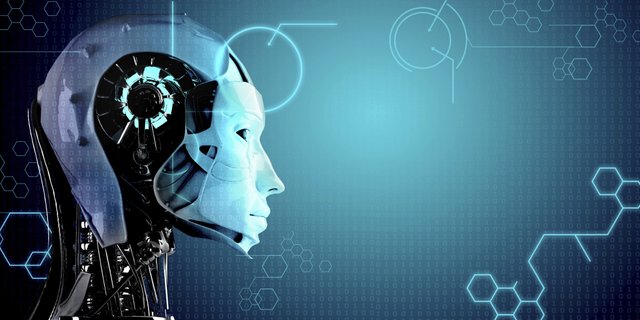Artificial intelligence in the workplace is here to stay. However, as enterprise technologies continue to develop and evolve, we must understand how AI will affect our roles and responsibilities at work.
The unknowns about the impact of AI has led to the fear that this emerging technology could be a substitute for – or entirely eradicate – existing jobs. Depending on which stats you refer to, AI will replace over 40% of jobs by 2030, or that 165 million Americans could be out of work before 2025.

Yet it is not all doom and gloom. Given the rate of new systems, processes, and data that we’re exposed to each day, AI can deliver tangible benefits in learning our skills, habits and behaviors, upending how we use technology. When companies are spending over $3.5 trillion on IT and use an average of 831 cloud services, it’s no surprise that we forget 70% of what we learn in a day, unless we immediately apply that knowledge into
our workflows.
There are four tectonic shifts happening within businesses that are propelling the need for greater personalization and efficiency in how we use technology:
● Employee expectations and behaviors have shifted. Unlike their predecessors, Millennials and Gen Z employees are accustomed to digital technologies. While they’re resourceful and can easily access information, they aren’t necessarily able to retain it. Generally speaking, they expect consumer-level technologies, are highly distracted and change positions often – and thus expect technology to be quick, efficient and intuitive.
● Organizations are undergoing a sweeping digital transformation. One of the biggest buzzwords of 2017 is “digital transformation” and has been sweeping across all businesses as they look to modernize their activities, processes and models to become completely digitized.
● Decisions are fragmented between departments. As companies move to more digitalized systems, the decision to implement new technologies has been driven by line of business heads. From HR systems, customer relationship management (CRM) tools to ERP solutions, procurement decisions are based on departmental needs, rather than the traditional approach of it being mandated by the CIO or at the organizational level.
● Cloud technologies are creating a training challenge. Cloud-based technologies indicate that systems are undergoing regular improvements and updates, creating a situation where employees must constantly adjust to new changes that they need to learn and adopt quickly.
Based on these changes, AI is a critical component for tomorrow’s organizations. Coupled with deep analytics, AI can greatly affect individual user behavior, identifying barriers to technology adoption and contextually guiding users on how to use any new solution. In doing so, employees can ultimately become instant pros in using a system – even if they haven’t used the technology before.
This contextual, personalized, and just-in- time approach allows us to abandon traditional training and development methods, which can become quickly outdated as we continue to encounter new systems and interfaces. It doesn’t make sense to set up a classroom style training to familiarize your team with a new HR software, for example, when incremental product updates occur so frequently. When employees are stuck
using a system, they’re more apt to ask a colleague for help, search online for the answer, or worst of all, give up on using the system. All are ineffective uses of our time.
Instead of feeling daunted by the onslaught of new systems we encounter, technology should learn about the user to improve their workflows. Creating systems that learn and automate tedious processes will be a major battleground for technology vendors in the next few years. It won’t be long before we can rely on AI to do all the “learning” for us – leading to a workplace where we train the software to adapt to our needs, rather than forcing us to adapt to the software.
Rephael Sweary is the cofounder and president of WalkMe, which pioneered the digital adoption platform. Previously, Rephael was the cofounder, CEO and then President of Jetro Platforms which was acquired in 2007. Since then, he has funded and helped build a number of companies both in his role as Entrepreneur-inResidence at Ocean Assets and in a personal capacity.
Hi! I am a robot. I just upvoted you! I found similar content that readers might be interested in:
https://clarenceomoore.wordpress.com/2017/12/14/how-artificial-intelligence-will-personalize-how-we-work/
Downvoting a post can decrease pending rewards and make it less visible. Common reasons:
Submit